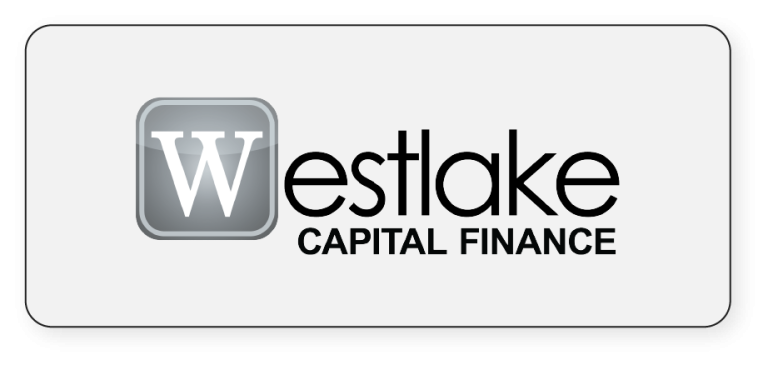
Okay, here is an article about business inventory loans, specifically focusing on Westlake Financial’s role, particularly in the context of their expertise, which primarily lies in the automotive sector.
Driving Growth: Navigating Business Inventory Loans with Westlake Financial’s Floor Plan Expertise
In the dynamic world of commerce, inventory is both an asset and a liability. It’s the lifeblood of retail, wholesale, and manufacturing businesses, representing potential sales and revenue. However, it also ties up significant capital, creating cash flow challenges that can hinder growth or even threaten solvency. This is where business inventory loans come into play, offering a crucial financial lifeline. While many financial institutions offer various forms of inventory financing, Westlake Financial, renowned for its prowess in the automotive finance sector, brings a specialized approach to this critical area, particularly through its floor plan financing solutions for dealerships.
This comprehensive article will delve into the intricacies of business inventory loans, explore their vital role in business operations, and then focus on Westlake Financial’s unique position and offerings, primarily within the automotive industry. We will examine the mechanics, benefits, challenges, and strategic considerations for businesses looking to leverage such financial instruments to fuel their expansion and maintain operational agility.
The Cornerstone of Commerce: Understanding Business Inventory Loans
At its core, a business inventory loan is a type of working capital financing where a company uses its existing or future inventory as collateral to secure a loan. This allows businesses to free up cash that would otherwise be tied up in unsold goods, enabling them to meet operational expenses, invest in new opportunities, or manage seasonal fluctuations.
Why Businesses Need Inventory Loans:
- Cash Flow Management: Inventory represents a significant investment. Without a robust inventory financing strategy, businesses might find their cash flow constrained, making it difficult to cover daily operating costs, payroll, or rent.
- Seizing Opportunities: Market demand can be unpredictable. An inventory loan allows businesses to purchase larger quantities of goods at favorable prices, stock up on popular items, or respond quickly to sudden spikes in demand without depleting their working capital.
- Managing Seasonality: Many industries experience seasonal peaks and troughs. An inventory loan can help businesses build up stock in anticipation of busy periods and then repay the loan as sales materialize, smoothing out their financial cycles.
- Expansion and Growth: As businesses grow, so does their need for inventory. Financing can support this expansion, allowing companies to enter new markets, introduce new product lines, or increase production capacity.
- Supplier Relationships: Being able to pay suppliers promptly or make bulk purchases can often lead to better pricing and terms, strengthening supplier relationships.
Types of Inventory Financing:
While the general concept remains the same, inventory loans can manifest in several forms:
- Revolving Lines of Credit: This is a flexible option where businesses can borrow up to a certain limit, repay, and then re-borrow as needed. Interest is only paid on the amount drawn. Inventory often serves as primary collateral.
- Term Loans: A lump sum is provided, to be repaid over a fixed period with regular installments. While sometimes secured by inventory, these are less common for direct inventory financing unless it’s a specific, large-scale purchase.
- Floor Plan Financing: This specialized type of inventory loan is particularly prevalent in industries dealing with high-value, discrete units of inventory, such as automobiles, recreational vehicles, heavy equipment, and even some electronics. The lender finances specific items of inventory (e.g., individual cars), and the loan is typically repaid when each item is sold.
Westlake Financial: A Specialized Player in Inventory Finance
Westlake Financial Services has carved out a significant niche in the automotive finance industry. Known primarily for its indirect auto lending solutions for consumers across the credit spectrum, Westlake’s expertise extends beyond individual car loans to encompass crucial support for the dealerships themselves. This support often includes various dealer services, among which floor plan financing stands out as their primary contribution to the business inventory loan landscape.
Unlike a generic bank that might offer inventory loans to a diverse range of businesses (from clothing retailers to electronics wholesalers), Westlake’s specialization allows them to deeply understand the unique challenges and opportunities within the automotive dealership model. Their floor plan financing is specifically designed to help auto dealerships acquire and maintain a robust inventory of vehicles – both new and used – without tying up their operational cash.
Understanding Westlake’s Floor Plan Financing for Auto Dealerships:
Floor plan financing for auto dealerships works as follows:
- Vehicle Acquisition: When a dealership purchases vehicles from manufacturers (new cars) or at auctions (used cars), Westlake Financial can finance these purchases.
- Collateral: Each vehicle acquired becomes the collateral for a specific loan under the floor plan agreement.
- Drawdown: The dealership draws funds from their approved credit line to pay for the vehicles.
- Interest & Fees: The dealership pays interest on the outstanding balance, usually on a daily or monthly basis, along with any applicable fees.
- Repayment Upon Sale: The crucial aspect is that when a vehicle is sold to an end-consumer, the dealership uses a portion of the sale proceeds to immediately repay the corresponding floor plan loan for that specific vehicle. This mechanism ensures that capital is quickly recycled.
- Curtailments: If a vehicle remains unsold for a certain period (e.g., 60, 90, or 120 days), the lender may require the dealership to make a partial payment on the principal balance. These are known as "curtailments" and serve to reduce the lender’s risk on aging inventory and encourage timely sales.
The Mechanics of Westlake’s Floor Plan Program
For auto dealerships, partnering with Westlake Financial for floor plan financing offers a tailored solution built on years of industry insight.
Eligibility and Application:
- Established Dealerships: Westlake typically partners with established, licensed auto dealerships with a proven track record.
- Financial Health: Like any lender, Westlake assesses the dealership’s financial stability, credit history, and overall business health.
- Inventory Type: The program is specifically designed for vehicle inventory (new and used cars, trucks, etc.).
- Application Process: This usually involves submitting financial statements, tax returns, dealership licenses, and details about the proposed inventory. Westlake’s existing relationships with many dealerships for consumer financing can often streamline this process, as they already have a foundational understanding of the dealership’s operations.
Valuation and Terms:
- Vehicle Valuation: Westlake employs robust methods for valuing the vehicles being financed, often utilizing industry-standard guides (like Manheim Market Report for used cars) to determine the maximum loan amount per unit.
- Credit Limits: An overall credit limit is established for the dealership, dictating the maximum value of inventory that can be financed at any given time.
- Interest Rates and Fees: These are determined by factors such as the dealership’s creditworthiness, the term of the agreement, and prevailing market rates. Fees might include administrative charges, audit fees, and potential curtailment fees.
- Reporting and Auditing: Dealerships are typically required to provide regular reports on their inventory status. Westlake, like other floor plan providers, conducts periodic physical audits of the dealership’s inventory to ensure accuracy and compliance with the loan agreement.
Benefits and Advantages of Westlake’s Approach
Leveraging Westlake Financial for floor plan financing offers several distinct advantages for auto dealerships:
- Specialized Industry Knowledge: Westlake’s deep roots in automotive finance mean they understand the specific market dynamics, inventory cycles, and operational needs of dealerships better than a generalist lender might. This specialized insight can lead to more flexible terms and a more efficient approval process.
- Streamlined Integration: For dealerships already partnering with Westlake for consumer financing, integrating floor plan services can create a seamless financial ecosystem, simplifying management and potentially offering bundled benefits.
- Enhanced Inventory Turnover: By providing readily available capital, Westlake’s floor plan enables dealerships to maintain an optimal stock level, ensuring they have the right vehicles to meet customer demand, which can directly lead to higher sales and faster inventory turnover.
- Improved Cash Flow: The ability to finance inventory separately from operational capital significantly improves a dealership’s cash flow, allowing them to allocate resources to marketing, facility upgrades, or staff training.
- Competitive Edge: A well-stocked lot, financed efficiently, gives dealerships a competitive edge, attracting more buyers and facilitating quicker transactions.
- Scalability: As a dealership grows, Westlake’s floor plan solutions can scale with their needs, accommodating larger inventory volumes and supporting expansion efforts.
Challenges and Considerations
While inventory loans, particularly floor plan financing, offer significant benefits, they also come with inherent challenges and considerations that businesses, especially dealerships, must carefully manage:
- Inventory Management: The core challenge is effective inventory management. Slow-moving or obsolete inventory can quickly become a financial burden, incurring carrying costs and potential curtailment fees. Dealerships must have robust systems for tracking sales, managing aged inventory, and making timely adjustments to their purchasing strategies.
- Market Fluctuations: The value of vehicles, particularly used ones, can fluctuate due to economic conditions, new model releases, or changing consumer preferences. A sudden drop in market value can leave a dealership with inventory that is worth less than its financed amount, increasing risk.
- Interest Rate Risk: Floor plan loans often have variable interest rates. Increases in base interest rates can lead to higher financing costs, impacting the dealership’s profitability.
- Curtailment Payments: While designed to manage risk, regular curtailment payments on unsold inventory can strain a dealership’s cash flow if sales are slower than anticipated.
- Compliance and Audits: Strict adherence to the loan agreement and active participation in audits are crucial. Non-compliance can lead to penalties or even the revocation of the floor plan facility.
- Exit Strategy for Unsold Units: Dealerships must have clear strategies for liquidating aging inventory, whether through special promotions, internal transfers, or wholesale channels, to avoid excessive carrying costs and maximize recovery.
Beyond Westlake: A Glimpse at Broader Inventory Financing
It’s important to reiterate that while Westlake Financial excels in automotive floor plan financing, the broader landscape of business inventory loans is vast. Other financial institutions, from large commercial banks to specialized asset-based lenders, offer solutions tailored to various industries. These might include:
- Retail Inventory Loans: For clothing stores, electronics shops, etc.
- Wholesale Distributor Financing: For companies moving large volumes of goods between manufacturers and retailers.
- Manufacturing Inventory Loans: For raw materials, work-in-progress, and finished goods.
Each industry and business model presents unique requirements, and choosing the right financing partner depends on a careful assessment of needs, the nature of the inventory, and the lender’s expertise.
Conclusion: Strategic Financial Management for Inventory
Business inventory loans are indispensable tools for managing working capital and driving growth across numerous sectors. For auto dealerships, specifically, Westlake Financial’s specialized floor plan financing offers a powerful, industry-tailored solution. By understanding the nuances of these loans, from their fundamental purpose to the specific mechanisms of Westlake’s programs, businesses can make informed decisions.
Leveraging inventory financing effectively requires more than just securing a loan; it demands meticulous inventory management, keen market awareness, and a robust sales strategy. For auto dealerships, Westlake Financial represents a partner that not only provides the necessary capital but also brings a deep understanding of their operational landscape. In an ever-competitive market, strategic financial management, underpinned by appropriate inventory financing, is not just an advantage – it’s a necessity for sustained success and growth.

